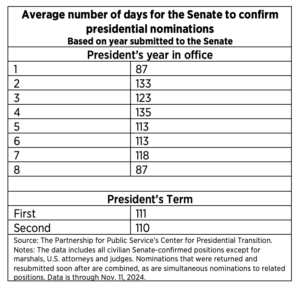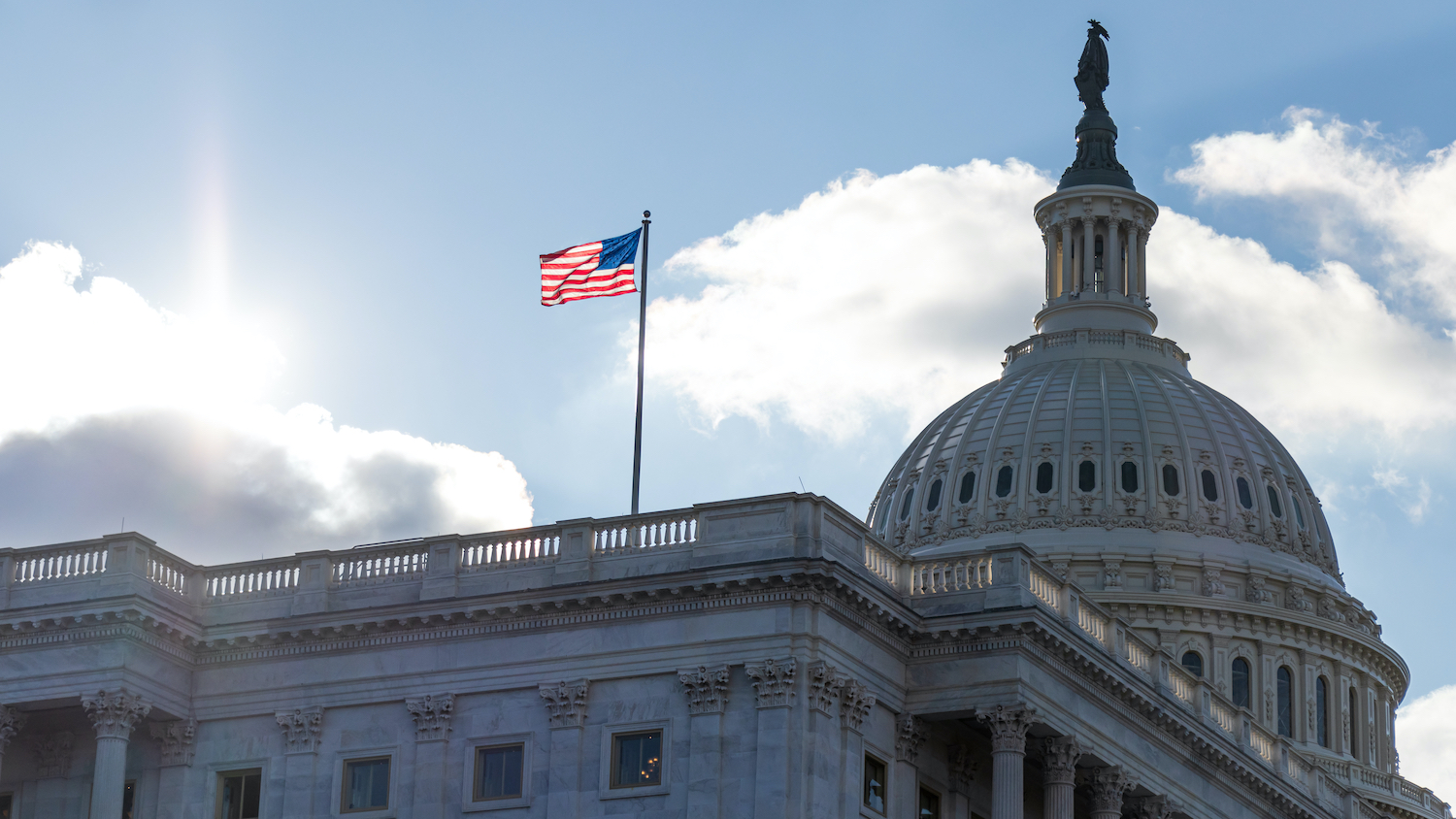Blog
November 21, 2024
Senate Confirmations Slow to a Crawl
The process takes almost three times as long as it did during the Reagan administration
As President Donald Trump plans to enter the White House for the second time, a major responsibility will be to fill the more than 1,300 political appointee positions that require Senate confirmation. As with all recent presidents, Trump will face a problem that has been growing over time—the Senate confirmation process has become more cumbersome because the Senate’s responsibility to “advise and consent” takes far longer now than it did in previous years.
The official confirmation process takes almost three times as long now as it did during President Ronald Reagan’s administration. Throughout President Joe Biden’s administration confirmations have taken an average of about 192 days from the time they were officially submitted to the Senate until they were confirmed (as of Nov. 11, 2024). By contrast, during Reagan’s administration, the average confirmation took 69 days. These numbers include all civilian Senate-confirmed positions except for judges, marshals and U.S. attorneys.
Many factors contribute to the length of time that nominations remain pending in the Senate. The Senate must focus on a wide range of issues and processes beyond nominations. Additionally, any senator can place a “hold” on a nominee to attempt to extract concessions on matters unrelated to the nominee’s qualifications. And the Senate has increased the use of filibusters to delay nominations over time.
The lengthy Senate confirmation process has resulted in delays in filling many critical management and policy-focused positions, and some key jobs have remained vacant for years. Such vacancies make it difficult for agencies to undertake long-term planning and harm the public reliant on their services.
The Senate can move quickly on nominations when it so choses. In fact, nominees for Cabinet secretary positions are often confirmed quickly, especially at the start of a new administration. Since 1981, Cabinet secretaries have been confirmed in an average of 25 days, compared with 112 days for all other positions.
In fact, movement on Cabinet secretaries often occurs even before a new president takes office. Of Biden’s first 15 nominations for Cabinet positions, four had Senate hearings prior to Biden’s inauguration and six were confirmed within a month after he took office. For Trump’s first term, 12 nominees for Cabinet positions had hearings prior to Inauguration Day and nine were confirmed within a month of him taking office.

Presidents have the most success filling Senate-confirmed positions during their first year in office
Presidents have incentives to fill positions quickly after taking office. Not only are these jobs important for effective governing, but the Senate confirmation process is faster in an administration’s first year than in nearly any other year of a president’s term. For the past seven presidents, the confirmation process for nominations submitted during the first year averaged 87 days, 26 days faster than any other year, except for the last year in office when a president is finishing their second term. This is in part because presidents often have a honeymoon period soon after their inauguration and because many early nominations involve highly ranked positions that receive priority.
Conclusion
Presidential appointees requiring Senate confirmation face a process that is longer, harder, more public and more complex than their predecessors faced 40 years ago. While our nation relies on talented individuals to assume leadership roles in government, the difficulty of navigating the Senate confirmation process makes the prospect of a presidential appointment daunting. Many service-minded people even forego a presidential appointment because the lengthy process takes a heavy toll on their professional and personal lives.
Congress should consider reforms to improve the confirmation process such as decreasing the number of positions requiring Senate approval and improving the Senate’s privileged calendar process. Additionally, incoming presidential administrations should move quickly to vet and submit their nominations—starting right after Election Day.
The federal government will operate most effectively—and be most accountable to the public—when the best and the brightest are motivated to serve their country. Senators should work across party lines to confirm qualified appointees and consider reforms to make the process run smoothly. And every administration will benefit from starting early and moving with speed to staff the government.



